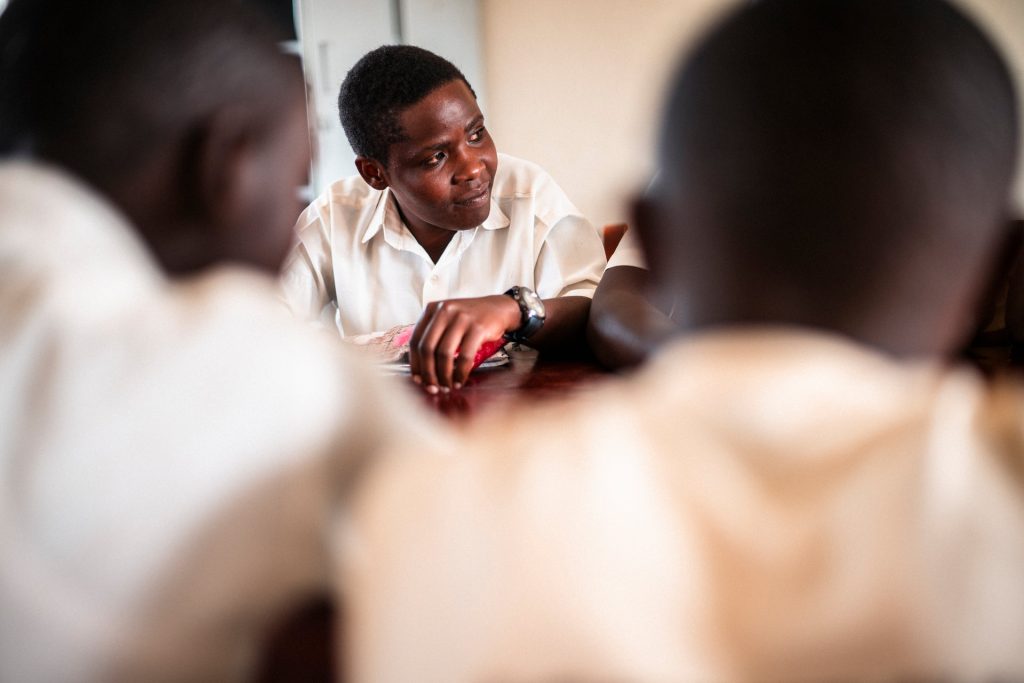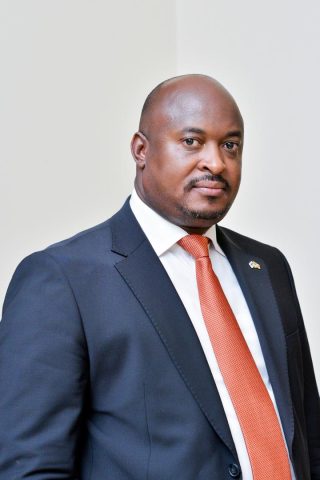Cuts in aid, cuts in classrooms: refugee children left behind

By Wycliffe Nsheka, Country Director, Finn Church Aid Uganda
IN TIMES OF CRISIS, education is more than a right, it is a lifeline. It provides children with stability, hope, and the tools to build a better future. Yet in Uganda, where needs are rising and funding is declining, education in emergencies is at risk.
Uganda hosts Africa’s largest refugee population, over 1.9 million as of May 2025, according to UNHCR. More than half are children under 18. Close to one million school-aged children are struggling to access quality education.
In Western Uganda, refugee settlements such as Nakivale, Rwamwanja, and Kyaka II host over half a million people—264,547 in Nakivale, 103,015 in Rwamwanja, and 135,203 in Kyaka II. With more than 65% of the population being of school-going age, the pressure on the education system is immense.
Take Armstrong, a young Congolese refugee in Kyaka II refugee settlement. Conflict forced him out of school for two years. But with the support of Finn Church Aid (FCA), he returned to class, received psychosocial support, and began to rebuild his future. Today, he dreams of becoming a doctor.
Support for children like Armstrong includes catch-up learning, psychosocial care, and inclusive education. These interventions are made possible through FCA’s education programs, implemented in partnership with the Government of Uganda and supported by UNHCR, Education Cannot Wait, the European Union, and the Ministry for Foreign Affairs of Finland.
Progress under threat
Globally, education receives less than 2% of all humanitarian aid, a chronic shortfall mirrored in Uganda, where the Refugee Response Plan was only 46% funded by the end of 2024, with education remaining one of its most underfunded sectors. Recent funding cuts, particularly by the United States, have further deepened the crisis.
In Uganda, refugee children are increasingly at risk of missing school as support for basic teaching and learning materials and critical infrastructure has stalled. This includes approximately 127,000 primary and 19,000 secondary students supported under FCA’s education in emergencies program.
The suspension of food rations by the UN World Food Programme for nearly one million refugees has worsened the crisis, increasing child labour, child protection risks and associated school dropouts.
We don’t give up
Both national governments and international donors must prioritise education in emergencies. Without this commitment, years of progress could unravel. We urgently need flexible, predictable and long-term financing. Short-term projects are not enough. Sustainable progress requires multi-year investments that build resilience and improve system-wide quality.
Frontline teachers especially in remote and overcrowded refugee settlements must be recruited, trained, and retained. At the same time, we must upgrade infrastructure to meet the growing demand for classrooms and learning materials.
Education must also be holistic. Psychosocial support and safe learning environments are vital for children’s well-being and academic success. And this must include improvement of the wellbeing of teachers, who support the children.
If we fail to act, we risk losing a generation. But with targeted investment even in crisis we can turn classrooms into foundations for peace, integration, and hope.
Without access to education, girls and boys face increased risks of serious protection concerns, including recruitment into armed groups, child labour, early marriage, early pregnancy, and trafficking.
At FCA, we remain committed, WE DON’T GIVE UP. Every child deserves access to quality education, no matter the circumstances. Because in every classroom lies the promise of a better tomorrow.
—
Published in recognition of World Refugee Day 2025 and its theme: ‘Solidarity with Refugees’.
Read more about our work in Uganda.
—
